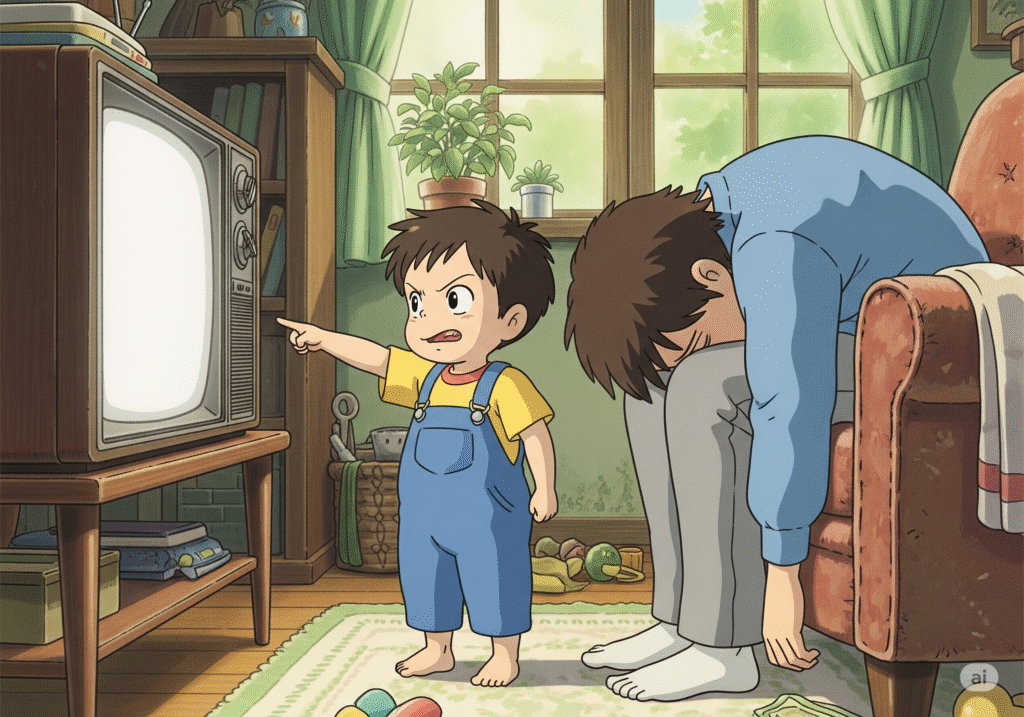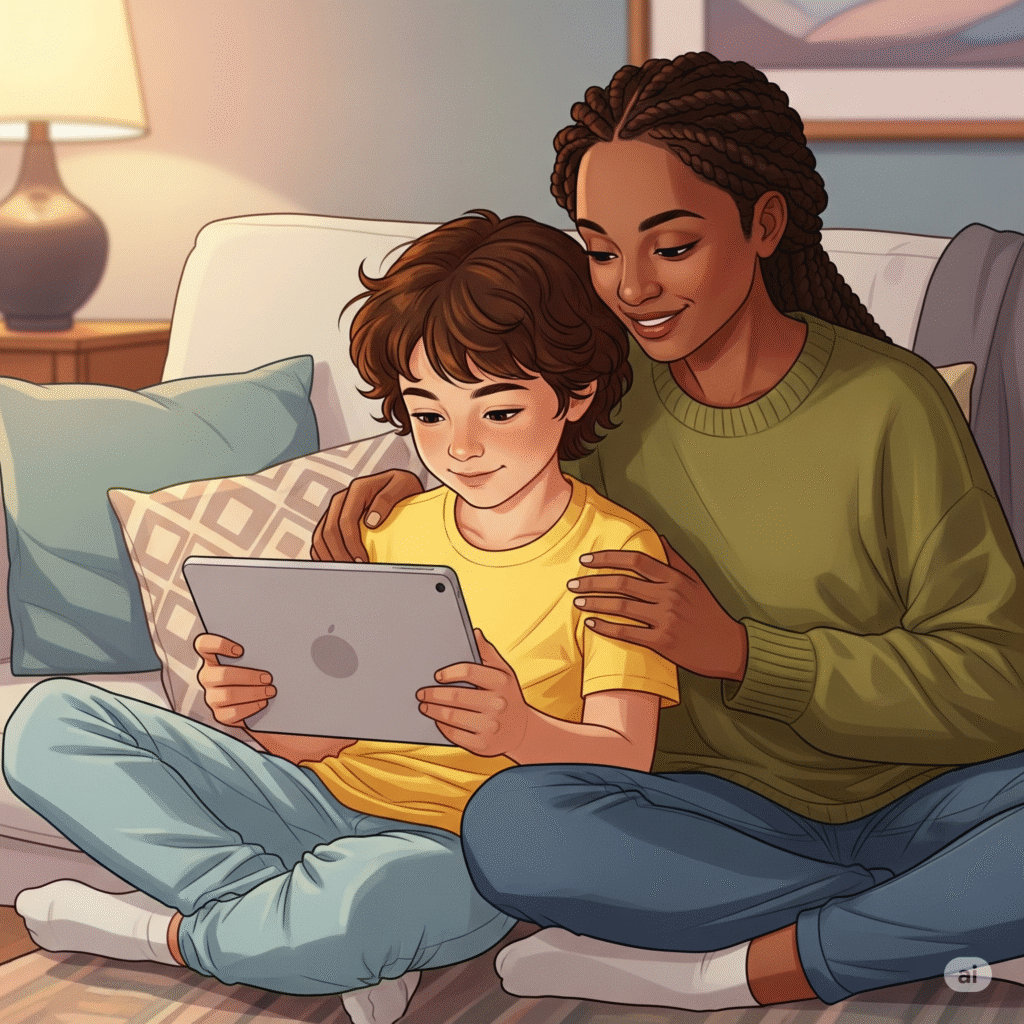Physical Address
304 North Cardinal St.
Dorchester Center, MA 02124
Physical Address
304 North Cardinal St.
Dorchester Center, MA 02124

I remember when I was growing up, which would have been many years ago now, screen time was already a hard-fought battle. My parents had a clear rule: if we finished our homework and did our chores, my sibling and I would get a grand total of three hours of screen time… to share between us. At the time, I’m sure many resentful thoughts went through my head, why three hours, why shared, why why why. All I could think about was how to get more access to the computer or gaming console, so I could play games, yup unfortunately gaming was and probably still is my vice. Looking back, it felt like an addiction, a craving that has only had more opportunity to grow over time with the invention of tablets, mobile phones, and the endless sea of digital access. It was a far simply time back then, but the same screen time conundrum existed even then.
Fast forward to today, and that landscape seems almost quaint. For the kids of today, we live in a truly digital world, that is getting ever more connected. It’s not a treat anymore, it’s a fundamental part of life. It’s a daily tug-of-war between guilt, convenience, and the genuine desire to do what’s best for our kids. If you’re navigating this digital minefield too, know that you are not alone. It’s a challenge that every parents faces!
The struggle is so real it’s even made it to the iconic Bluey series. In the episode “Bob Bilby,” Bingo brings the class mascot home for the weekend, and the family photo album shows they spent most of their time on the tablet. While Bluey and Bingo redeem themselves in the end, that episode hits uncomfortably close to home for many of us.

I’m sure most parents are fighting a similar battle. For us, both our kids, even the three-year-old, are constantly asking for the TV. We might let them watch some cartoons on Netflix (we still try to steer away from YouTube for now…), and we generally help select what to watch so they don’t stray too far. But it’s the constant pestering and badgering. Any free moment is met with, “Mum? Dad? Can we have some TV?” We all know how “persistent”, in other words, “annoying” kids can be.
Personally, this feels like a battle we will never truly win. Our kids will only get more and more access to screen time as they grow up, I’m sure of it. I suspect that even if we did everything in our power to restrict it now, it would just make them want it more, creating a vicious cycle.
But it’s not all bad. Like everything in parenting, there are pros and cons. There is plenty of scientific research suggesting that screen time, even at an early age (in moderation!), can be a valuable form of learning. It’s amazing to see how quickly a young child learns to interact with a tablet. They see something on TV, remember it, and connect the context to their own world. It is actually quite fascinating to watch those little brains work. If you are interested in looking into some of this scientific research, feel free to reach out and happy to share the links.
Of course, the obvious downside is that if they are glued to a screen all the time, they miss out. They miss out on the crucial social aspects of interacting with other kids, the simple joy of going outside to have fun, and the space to develop other, non-digital hobbies. Like everything in life, it needs to be in moderation.

So what’s the best strategy moving forward? Unfortunately, there isn’t one single answer. Like everything, what may work for our family may not work for yours. Every family has its own unique circumstances and each child is also uniquely different. As parents, we need to make an assessment and decide what may work best for our own situation.
However, here are some things we’ve learned along the way that might help you make that important decision.
1. Set the Ground Rules (and Stick to Them)

It is so important to set a routine. Kids need to know it’s not a free-for-all. Whether it’s a rule that they must do their homework first, help with a chore, or that screen time is a morning-only thing, a routine helps them understand the boundaries. No doubt they will still pester you, but you can always point back to the rules.
The key is consistency. If there’s a reason to change the rules, that’s fine, but you can’t suddenly change them on a whim. The rules are for both parents and kids to respect. Even better, set the rules together with your child. Discuss and negotiate so they feel like they are a part of the process.
2. Remember: They Reflect Us

Kids are a product of their environment, and they learn an incredible amount from their parents. If they constantly see us using a tablet, phone, or watching TV, they will want to do the same.
One time, when I got upset at my kid for constantly asking about TV, one retort stabbed me deeply in the heart: “But Dad, you are on your phone all the time too, so why can’t we watch a bit of TV?”
That hit hard. It made me realise the rules aren’t just for the kids; they are for parents too. It is a shared responsibility. Since then, I’ve made an active effort to restrict my own usage, especially in front of them. And hey, it’s a true win-win: the less time I spend on a screen, the more present I am to play with my kids, and my “do as I say, not as I do” argument completely disappears.
3. Content Matters

Screen time isn’t all the same. Watching a horror movie is not the same as watching a Disney movie. Free rein on YouTube can lead to some weird and wonderful content, much of which is hugely inappropriate for young kids. Platform controls and “Kids” accounts help, but things can slip through the cracks.
What has worked for us is to take an active interest in what our kids watch and sometimes even watch it with them. Paw Patrol, BeyBlade, Bluey, and The Wiggles reign supreme in our household, so we have a good idea of what they are consuming. Recently, Netflix promoted a show called K-Pop: Demon Hunters. The title sounded scary, so I watched it first myself and decided it was okay for them. We then watched it together and had a thoroughly enjoyable time. It’s time-consuming, but for us, it’s worth it. For other parents, a quick glance or simply asking “What are you watching?” can make all the difference.
4. Encourage Other Activities and Hobbies

As the old saying goes: everything in moderation. If you can encourage their interest in other things, they won’t always be clamouring for a screen. For us, that means reading a book together, going for a bike ride, or going to the park and playing on the swings (OMG, she just won’t get off those swings, my poor arms…). If they have other interests and hobbies, they won’t necessarily always be wanting screen time.
Screen time is probably a necessary evil in this day and age, and it is absolutely something parents need to get on top of. But sometimes a gentle, moderating touch is better than a heavy, controlling hand.

What are the screen time rules that work in your house? Share your own hard-learned lessons in the comments below!